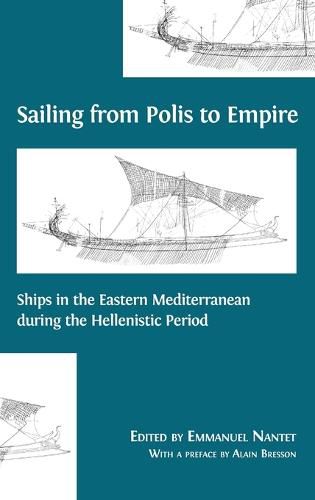Readings Newsletter
Become a Readings Member to make your shopping experience even easier.
Sign in or sign up for free!
You’re not far away from qualifying for FREE standard shipping within Australia
You’ve qualified for FREE standard shipping within Australia
The cart is loading…






This title is printed to order. This book may have been self-published. If so, we cannot guarantee the quality of the content. In the main most books will have gone through the editing process however some may not. We therefore suggest that you be aware of this before ordering this book. If in doubt check either the author or publisher’s details as we are unable to accept any returns unless they are faulty. Please contact us if you have any questions.
What can the architecture of ancient ships tell us about their capacity to carry cargo or to navigate certain trade routes? How do such insights inform our knowledge of the ancient economies that depended on maritime trade across the Mediterranean?
These and similar questions lie behind Sailing from Polis to Empire, a fascinating insight into the practicalities of trading by boat in the ancient world. Allying modern scientific knowledge with Hellenistic sources, this interdisciplinary collection brings together experts in various fields of ship archaeology to shed new light on the role played by ships and sailing in the exchange networks of the Mediterranean. Covering all parts of the Eastern Mediterranean, these outstanding contributions delve into a broad array of data - literary, epigraphical, papyrological, iconographic and archaeological - to understand the trade routes that connected the economies of individual cities and kingdoms.
Unique in its interdisciplinary approach and focus on the Hellenistic period, this collection digs into the questions that others don’t think to ask, and comes up with (sometimes surprising) answers. It will be of value to researchers in the fields of naval architecture, Classical and Hellenistic history, social history and ancient geography, and to all those with an interest in the ancient world or the seafaring life.
$9.00 standard shipping within Australia
FREE standard shipping within Australia for orders over $100.00
Express & International shipping calculated at checkout
This title is printed to order. This book may have been self-published. If so, we cannot guarantee the quality of the content. In the main most books will have gone through the editing process however some may not. We therefore suggest that you be aware of this before ordering this book. If in doubt check either the author or publisher’s details as we are unable to accept any returns unless they are faulty. Please contact us if you have any questions.
What can the architecture of ancient ships tell us about their capacity to carry cargo or to navigate certain trade routes? How do such insights inform our knowledge of the ancient economies that depended on maritime trade across the Mediterranean?
These and similar questions lie behind Sailing from Polis to Empire, a fascinating insight into the practicalities of trading by boat in the ancient world. Allying modern scientific knowledge with Hellenistic sources, this interdisciplinary collection brings together experts in various fields of ship archaeology to shed new light on the role played by ships and sailing in the exchange networks of the Mediterranean. Covering all parts of the Eastern Mediterranean, these outstanding contributions delve into a broad array of data - literary, epigraphical, papyrological, iconographic and archaeological - to understand the trade routes that connected the economies of individual cities and kingdoms.
Unique in its interdisciplinary approach and focus on the Hellenistic period, this collection digs into the questions that others don’t think to ask, and comes up with (sometimes surprising) answers. It will be of value to researchers in the fields of naval architecture, Classical and Hellenistic history, social history and ancient geography, and to all those with an interest in the ancient world or the seafaring life.